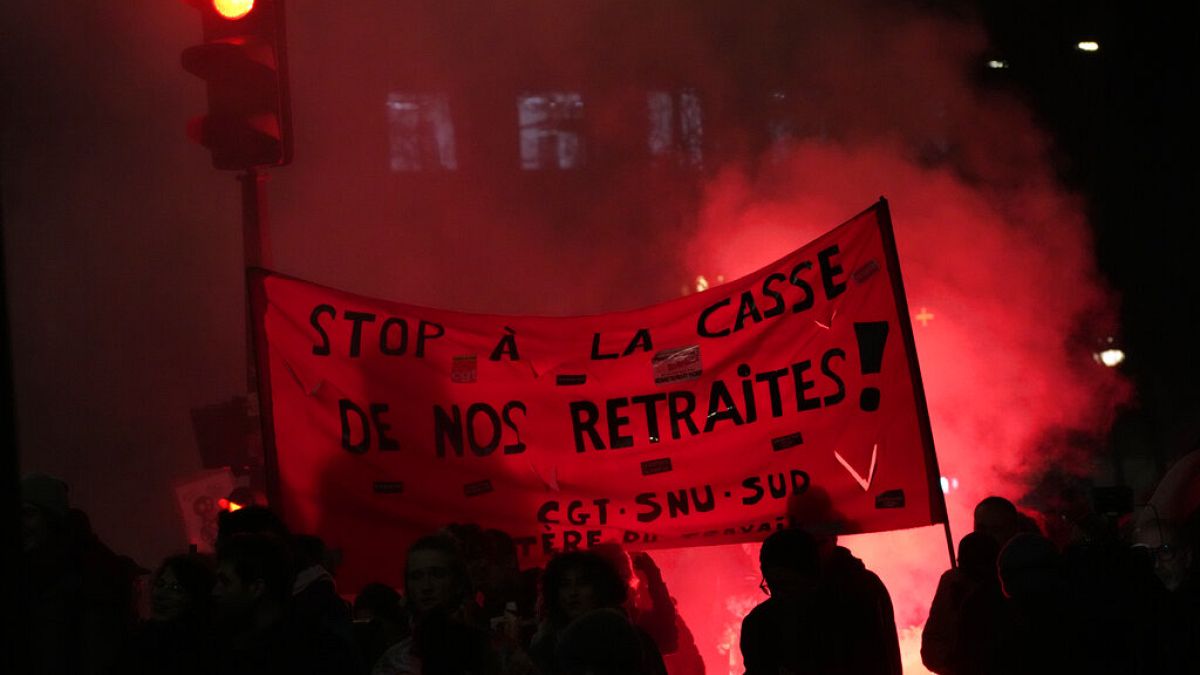French Transport Minister Clement Beaune said the government is interested in implementing the "Italian style" strike system. But what does that mean?
Hundreds of thousands of protestors took to the streets this Tuesday, bringing France to a standstill.
For the second time this month, different unions -- from school teachers to railway workers -- staged a massive strike against government plans to raise the retirement age.
Despite the unrest, President Emmanuel Macron’s government is standing firm on the planned pension reform.
On the rail networks, only one in every three high-speed trains was operating.
This has pushed Transport Minister Clement Beaune to recently announce the government will be considering reforming the country’s laws when it comes to strikes, saying it wants to follow the "Italian style".
But what does that mean?
First of all, in Italy, railway workers are not allowed to strike during holiday periods such as Christmas, Easter and also during August, the month when most Italians go on vacation.
Industrial action on the railways is also not allowed during election days.
The unions have to provide a minimum service level of transport, which means certain workers have to keep trains operating during a strike. This law also applies to doctors, lawyers and even taxi drivers.
In addition, a 10-day notice must be given, while in France it’s only 5 days.
How do other countries in Europe compare?
Portugal
In Portugal, there’s also a similar law to Italy which imposes a minimum service in essential sectors, including transportation.
The government is allowed to call on its workers to guarantee that at least 25 per cent of the trains are operating.
Spain
In Spain, a minimum service is also guaranteed but a little less strict than in Italy.
One long-distance train per day must be operational and up 60 per cent of regional trains can be forced to keep running during strikes.
Austria & Germany
In Austria and Germany, civil servants do not have the right to strike, since their services are considered essential.
But in Germany, these workers only represent 30 per cent of the personnel in the public service. The rest are considered private-sector workers, making it possible for some civil servants to strike.
UK
It's not just France that felt inspired by Italy's strike laws.
In the UK, Prime Minister Rishi Sunak is considering a bill imposing a minimum service in transport and emergency services during industrial action as the country faces historic protests.
Hungary
Hungary also has minimum service laws, which means certain public sector workers can be dismissed if they withhold their labour.
Critics have said the rules undermine the effectiveness of strikes.
Efforts by Budapest to increase the amount of work teachers must do while striking triggered large protests this year.
